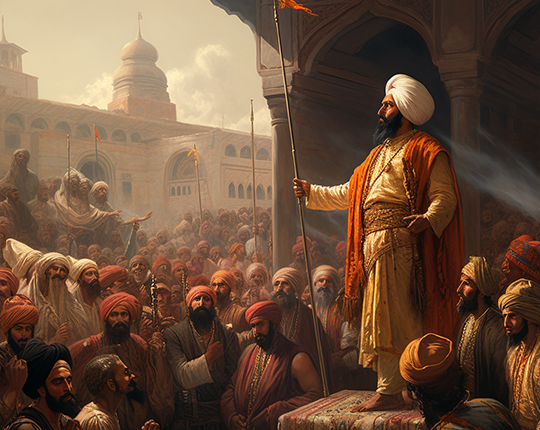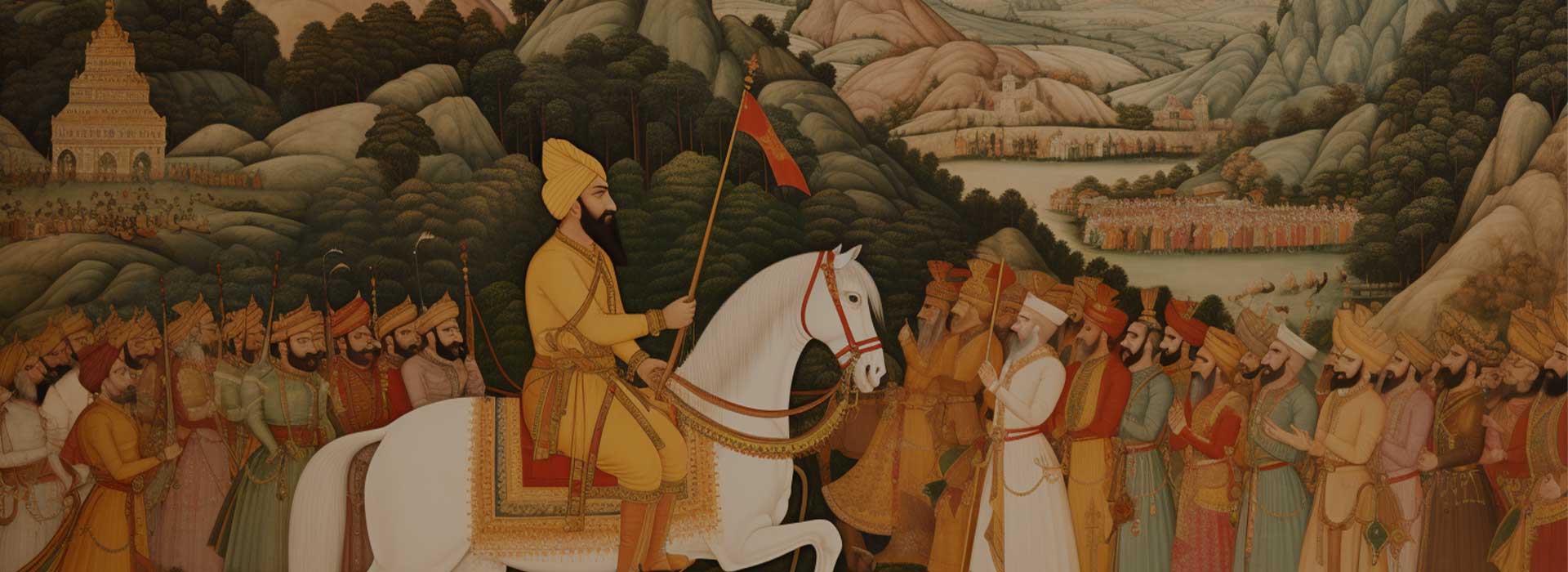Ranjit Singh’s Ethically Conducted Governance
The Kingdom of Maharaja Ranjit Singh turned out to be the epitome of an ethically conducted governance.
It was characterized by his strong moral principles, commitment to public welfare & society, respect for each class & occupation, and adherence to justice, freedom and dignity.
- Ranjit Singh always thought about what was good for the people more than what he wanted for himself.
- He felt a strong duty to take care of the well-being of the people.
Maharaja believed that being the king was like having a special responsibility, and he saw it as a sacred duty to use his power for the benefit of everyone, not just for his gain.
Let us enlighten you on how Maharaja Ranjit Singh’s Governance was conducted ethically for the greater good.

Maharaja’s Behaviour towards Children and Elderly.
He was the favourite king among people. His affection for kids and respect for the elderly was priceless.
Once when he was passing through the streets of Lahore, some mischievous children were targeting fruits of a tree with a stone when it accidently hit Ranjit Singh.
Instead of being angry and punishing children, he kept his calm and remained composed. Surprisingly, he warmly smiled and said, “If this tree can provide sweet fruit after getting hit by stones then why would I being their king punish these innocent children?”
Similarly, he had a big respect for elder ladies and men. He always listened to their issues regardless of his occupied and busy schedule.
Ranjit Singh’s Ethics for Religions.
Maharaja’s kingdom was known as a shield made of social ethics and moral values. he always used his official power for society’s well-being.
When returning from one of his glory, he issued strict instructions when Khalsa Army was passing through Peshawar; not to destroy any Mosque, not to insult any women and being, and not to destroy crops, and any public property.
Ethical Governance in Kashmir.
In 1819, when Maharaja Ranjit Singh took charge of Kashmir, he didn’t just want to control it; he also aimed to make it prosperous and renowned again.
Dealing with the local Muslim people, who weren’t happy with Sikh rule, needed a firm approach. But for everyday life and boosting the shawl trade, he chose a kind and patient strategy.
This mix of strong and gentle leadership shows that Ranjit Singh cared about improving things for the people and respected their beliefs.
Protection of Significant Buildings and Beliefs.
In the empire of Maharaja Ranjit Singh, every community’s religious buildings and vernacular institutes were safe, secure and protected.
People had no fear of getting punished, or locked down of following their belief systems.
He allowed Hindu temples to be built without restrictions, and religious knowledge to spread without interference.
Even his military officials, traders, and some European groups practiced their unique faith without conditions.
In this way, above historic happenings directly showed the ethical governance of Maharaja Ranjit Singh’s kingdom and how he combined authority with understanding and patience.
This balanced and thoughtful approach proves that the governance was ethical.
